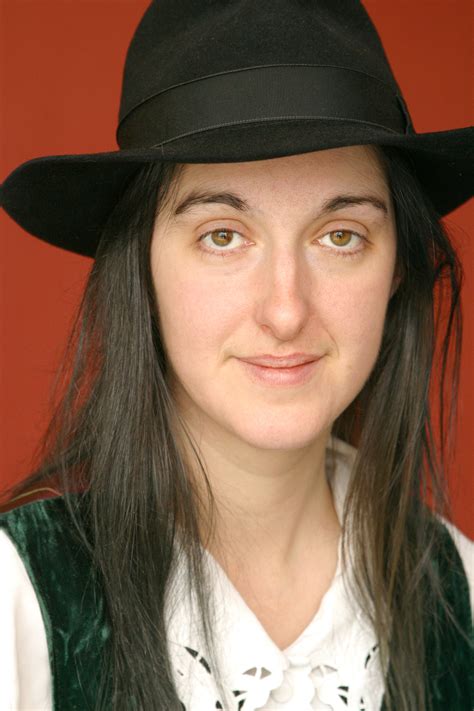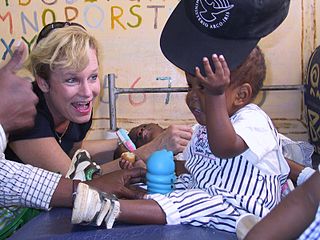A Quote by Ernest Hemingway
The whiskey warmed his tongue and the back of his throat, but it did not change his ideas any, and suddenly, looking at himself in the mirror behind the bar, he knew that drinking was never going to do any good to him now. Whatever he had now he had, and it was from now on, and if he drank himself unconscious when he woke up it would be there.
Related Quotes
At that instant he knew that all his doubts, even the impossibility of believing with his reason, of which he was aware in himself, did not in the least hinder his turning to God. All of that now floated out of his soul like dust. To whom was he to turn if not to Him in whose hands he felt himself, his soul, and his love?
It meant that Diana had not waited for any explanation, however halting and imperfect, but had condemned him unheard; and this showed a much harder, far less affectionate woman than the Diana he had known or had thought he knew - a mythical person, no doubt created by himself. It had of course been evident from her letter, which made no reference to his; but he had not chosen to see the evidence and now it was absolutely forced upon his sight it made his eyes sting and tingle again. And deprived of his myth he felt extraordinarily lonely.
At one o’clock, the ever-logical Right-Eye Grand Steward woke up to discover that during his sleep his left-eyed counterpart had executed three of his advisors for treason, ordered the creation of a new carp pool and banned limericks. Worse still, no progress had been made in tracking down the Kleptomancer, and of the two people believed to be his accomplices, both had been released from prison and one had been appointed food taster. Right-Eye was not amused. He had known for centuries that he could trust nobody but himself. Now he was seriously starting to wonder about himself.
How did it happen that now he could see everything so clearly. Something had given him leave to live in the present. Not once in his entire life had he come to rest in the quiet center of himself but had forever cast himself from some dark past he could not remember to a future that did not exist. Not once had he been present for his life. So his life had passed like a dream. Is it possible for people to miss their lives the way one can miss a plane?
This was why I was here. This was why I would take whatever reception waited for me when I got back. Because, underneath all the anger and the sarcasm, Jacob was in pain. Right now, it was very clear in his eyes. I didn't know how to help him, but I knew I had to try. It was more than that I owed him. It was because his pain hurt me, too. Jacob had become a part of me, and there was no changing that now.
I believe that Jesus would have given His life for just one person. Jesus emptied Himself, He humbled Himself and He so yielded Himself to His Father's love that He had no ambition of His own. He was not looking to build an empire, He did not want praise or adulation or to impress people with who or how many followed Him. He stopped over and over again for just one person, for just one life.
And still Meriadoc the hobbit stood there blinking through his tears, and no one spoke to him, indeed none seemed to heed him. He brushed away the tears, and stooped to pick up the green shield that Eowyn had given him, and he slung it at his back. Then he looked for his sword that he had let fall; for even as he struck his blow his arm was numbed, and now he could only use his left hand.
From this outer edge of his life, looking back, there was only one remorse, and that was only that he wished to go on living. Did all dying people feel this way, as if they had never lived? Did life seem that short, indeed, over and done before you took a breath? Did it seem this abrupt and impossible to everyone, or only to himself, here, now, with a few hours left to him for thought and deliberation?
What a grin he had, what ferocious eyes, what a creature he was. He had dreamt himself an entire life and death. Ronan said, "I want to go back." "Then take it," said his father. "You know how now." And Ronan did. Because Niall Lynch was a forest fire, a rising sea, a car crash, a closing curtain, a blistering symphony, a catalyst with planets inside him. And he had given all of that to his middle son.
When Luke had descended into the River Styx, he would've had to focus on something important that would hold him to his mortal life. Otherwise he would've dissolved. I had seen Annabeth, and I had a feeling he had too. He had pictured that scene Hestia showed me—of himself in the good old days with Thalia and Annabeth, when he promised they would be a family. Hurting Annabeth in battle had shocked him into remembering that promise. It had allowed his mortal conscience to take over again, and defeat Kronos. His weak spot—his Achilles heel—had saved us all
His face set in grim determination, Richard slogged ahead, his fingers reaching up to touch the tooth under his shirt. Loneliness, deeper than he had never known, sagged his shoulders. All his friends were lost to him. He knew now that his life was not his own. It belonged to his duty, to his task. He was the Seeker. Nothing more. Nothing less. Not his own man, but a pawn to be used by others. A tool, same as his sword, to help others, that they might have the life he had only glimpsed for a twinkling. He was no different from the dark things in the boundary. A bringer of death.
Will closed his eyes. He could not hear Jem go, not anymore; he did not want to know the moment when he left and Will was alone, did now want to know when his first day as a Shawdowhunter without a parabatai truly began. And if the place over his heart, where his parabatai rune had been, flared up with a sudden burning pain as the door closed behind Jem, Will told himself it was only a stray ember from the fire.
As a teenager in Brooklyn Quentin had often imagined himself engaged in martial heroics, but after this he knew, as a cold immutable fact, that he would do anything necessary, sacrificing whatever or whomever he had to, to avoid risking exposure to physical violence. Shame never came into it. He embraced his new identity as a coward. He would run in the other direction. He would lie down and cry and put his arms over his head or play dead. It didn't matter what he had to do, he would do it and be glad.
Behind the newspaper Julian was withdrawing into the inner compartment of his mind where he spent most of his time. This was a kind of mental bubble in which he established himself when he could not bear to be a part of what was going on around him. From it he could see out and judge but in it he was safe from any kind of penetration from without. It was the only place where he felt free of the general idiocy of his fellows. His mother had never entered it but from it he could see her with absolute clarity.






































